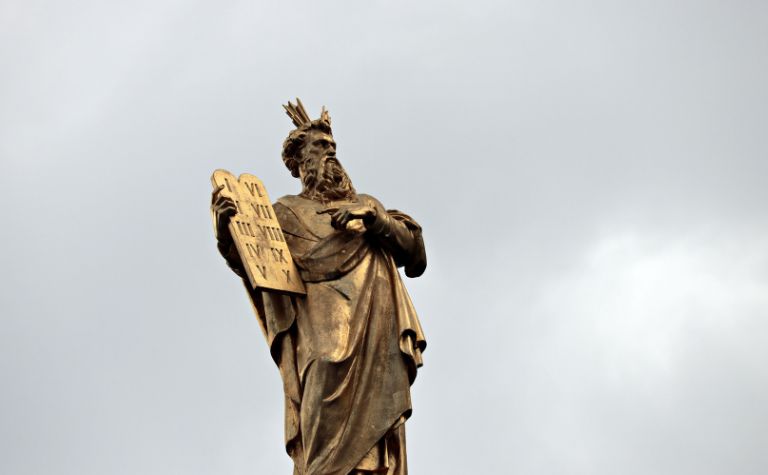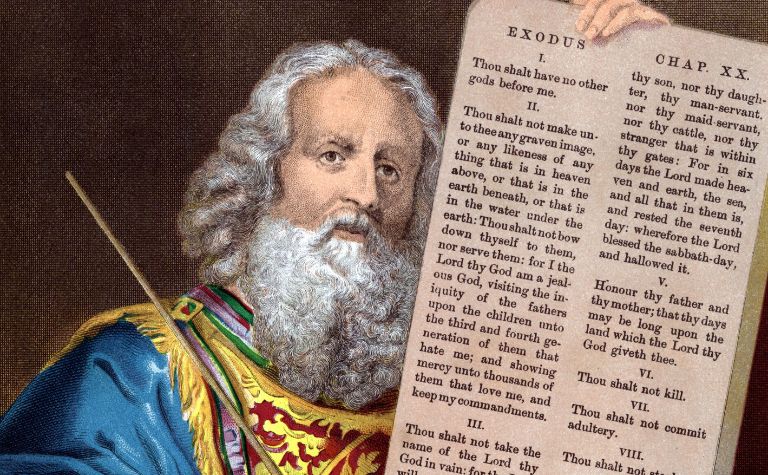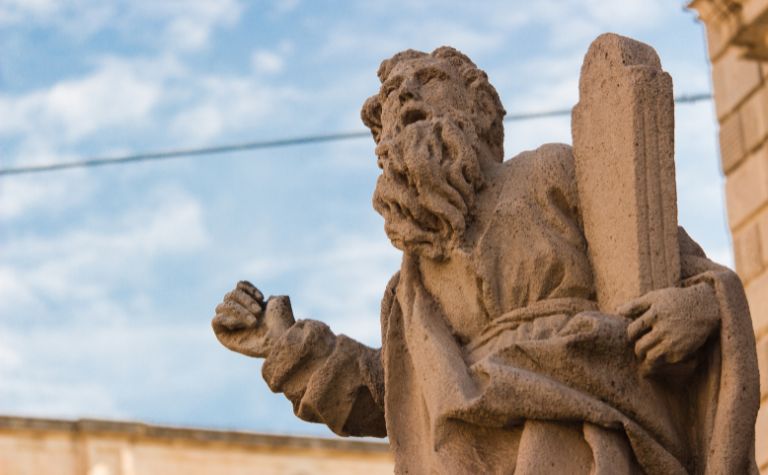Moses is among the most influential figures in the Old Testament. People know him for confronting the Egyptian Pharaoh, leading the Israelites through the parted waters of the Red Sea, and receiving the 10 Commandments on Mount Sinai. Because of his importance, readers are also interested to learn about his family.
Moses’ mother was named Jochebed. The Bible mentions her twice by name. The first time is in Exodus 6:20, a passage listing Moses’ genealogy. The second time is in Numbers 26:59, a passage listing Israelites from Levi, the tribal affiliation of Jochebed and Moses’ father, Amram.
What does the Bible reveal about Jochebed? How did she protect Moses from the Egyptian Pharaoh as a baby? What does the Bible say about Jochebed’s husband, Amram? What other children did they have together? Keep reading to learn the answers to these questions and others.
Also, the Bible reveals that Moses was born to Hebrew parents. Discover what tribe Moses was from in Israel to get more understanding of his background and story.

What Does the Bible Say About Jochebed?
The Bible doesn’t include much information about Jochebed because she isn’t a central figure in the story of Israel’s release from Egyptian captivity. The books in which her son, Moses, is a main character, Exodus, Leviticus, Numbers, and Deuteronomy, tell readers about life before, during, and after the release.
Exodus, Leviticus, Numbers, and Deuteronomy aren’t a biography of Moses. Instead, they tell of God’s work among his people and the special role he called Moses to fulfill.
Other people appear in the story, including Moses’ family members, like his parents and siblings, if they relate to the broader narrative of God’s redemption and protection of Israel.
Jochebed hides baby Moses
The beginning of Exodus tells readers about Moses’ birth and the circumstances that led to Pharaoh’s daughter caring for him as he grew (Exod. 2:1-10). The passage mentions Jochebed and her heroic efforts to save Moses’ life but doesn’t use her name.
The story reveals that Moses’ family was from the tribe of Levi. It also refers to the difficult circumstances for Hebrews living in Egypt at the time. Jochebed gave birth to Moses after Pharaoh had decreed that all Hebrew male babies must be killed to restrict their population growth (Exod. 1:8-22).
Exodus 2:1-2 reads, “Now a man from the house of Levi went and took as his wife a Levite woman. The woman conceived and bore a son, and when she saw that he was a fine child, she hid him three months.”
Pharaoh’s daughter raises Moses
Jochebed knew that she couldn’t continue to hide Moses. The Egyptians would eventually discover him, and his life would be in danger when they did. That’s when she enacted a plan to save her son. Jochebed decided to put Moses in the path of Pharaoh’s compassionate daughter.
“When she could hide him no longer, she took for him a basket made of bulrushes and daubed it with bitumen and pitch. She put the child in it and placed it among the reeds by the river bank” (Exod. 2:3-4).
Exodus says that Moses’ older sister, Miriam, watched as Pharaoah’s daughter found baby Moses. Recognizing that the baby would need nursing, Miriam volunteered to find a capable Hebrew woman.
Pharaoh’s daughter agreed, so Moses’ sister retrieved their mother, Jochebed, for the task. “Then his sister said to Pharaoh’s daughter, ‘Shall I go and call you a nurse from the Hebrew women to nurse the child for you?’ And Pharaoh’s daughter said to her, ‘Go.’ So the girl went and called the child’s mother” (Exod. 2:7-8).
With Pharaoh’s daughter unaware of the Hebrew woman’s true identity, Jochebed nursed Moses until he outgrew the need. Then she gave her son to Pharaoh’s daughter (Exod. 2:10).
Also, the Bible says more about Moses’ father-in-law than it does about his biological father. Learn what the Bible says about who Moses’ father was and where Scripture mentions him.

Jochebed Bore Moses, Aaron, and Miraim
Only two verses in the Bible mention the name Jochebed: Exodus 6:20 and Numbers 26:59. Readers find both verses in lists that summarize family and tribal affiliations in Israel.
Exodus 6:20 provides information about Moses’ parents and the sons born to them. “Amram took as his wife Jochebed his father’s sister, and she bore him Aaron and Moses, the years of the life of Amram being 137 years.” Not only do readers learn the names of Moses’ parents in this verse, but his brother, too.
Numbers 26:59 is part of a passage that lists families from Levi, the priestly tribe in Israel. The verse reveals information about Jochebed’s family and place of birth.
Unlike Exodus 6:20, this verse mentions Miriam. “The name of Amram’s wife was Jochebed the daughter of Levi, who was born to Levi in Egypt. And she bore to Amram Aaron and Moses and Miriam their sister.”
Also, one of the pivotal moments in Moses’ story is when he ends another man’s life. Discover who Moses killed, why, and what happened afterward.

Jochebed’s Family and Tribe
Exodus 2 and Numbers 26 reveal that Jochebed was from the tribe of Levi. Levi was the third son of Jacob and Leah (Gen. 29:34). Levi’s descendants became priests in Israel (Num. 3:11-13). The tribe was known for not participating in the idolatry of worshipping the golden calf (Exod. 32:25-29; Deut. 10:6-9).
Jochebed’s husband, Amram, was also a Levite. He belonged to the Kohathite family (Num. 3:27). According to the Holman Illustrated Bible Dictionary, the Amramites “served in the wilderness sanctuary and may have served in the temple treasuries in later years.” [1] The Bible mentions two other men named Amram (i.e., Ezra 10:34 and 1 Chron. 1:41).
Jochebed’s other son was Aaron. He plays a vital role in Moses’s story, and readers encounter him in Exodus, Leviticus, Numbers, and Deuteronomy. Aaron was Israel’s first high priest.
His wife, Elisheba, doesn’t play a central part in his narrative, but his four sons do (Lev. 10:1-2; 16:1-2). Like his brother Moses, Aaron had strengths and weaknesses.
Miriam was Jochebed’s daughter. Miriam was essential in saving Moses’ life as a baby (see above). Exodus describes her as a prophetess (Exod. 15:20). Like Moses and Aaron, Miriam made mistakes that resulted in consequences (Num. 12:-15). Despite her shortcomings, she had a positive legacy in Israel (e.g., Mic. 6:4).
References:
[1] Holman Illustrated Bible Dictionary. p. 63.
[2] Numbers by R. Dennis Cole. New American Commentary.
Related Questions
Moses had one of the most interesting families in the Bible. He was born to Hebrew parents, yet the Pharaoh's daughter raised him. Moses' siblings, Aaron and Miriam, played critically important roles...
Bible readers remember Moses for learning God's name through a burning bush, parting the Red Sea using God's power, and receiving the 10 Commandments from God on Mount Sinai. He is also known for...
